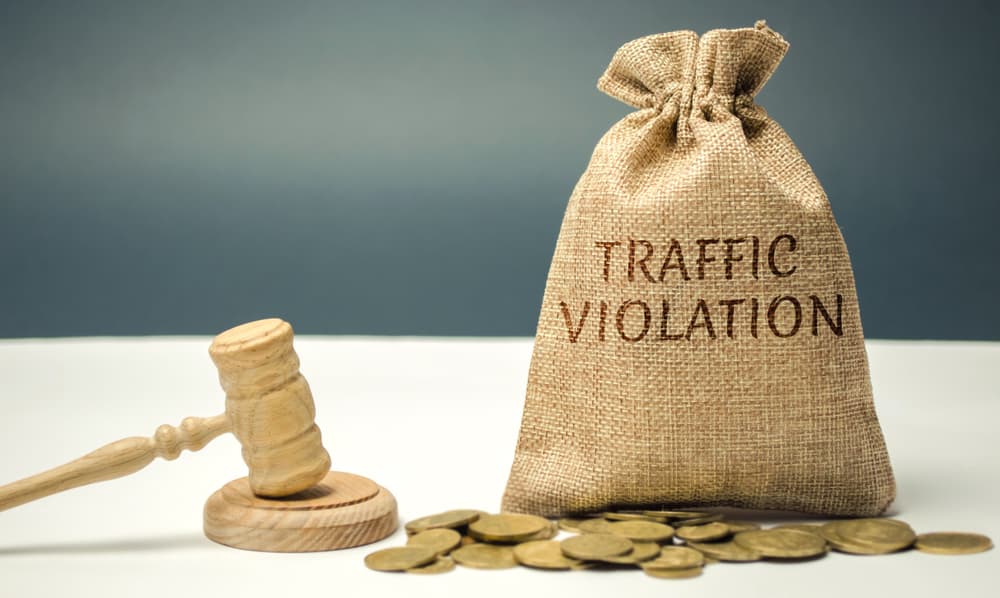You can use several methods or strategies to dismiss a traffic ticket, thereby making it possible to prevent a hike in insurance rates or a negative mark on your driving record.
If you plead "not guilty," a traffic ticket lawyer can help gather evidence, defend your case, and potentially remove the infraction from your record.
Schedule Your Free Consultation
Don’t Fight a Ticket Alone - Contact a Traffic Ticket Lawyer for a More Positive Outcome
You should contact a traffic ticket attorney to realize the best possible results. They are familiar with the procedures established by the local traffic court and can help with the paperwork and processes.
If you choose to plead “not guilty,” you can work with your attorney to gather the evidence needed to prove your innocence and challenge a ticket you believe is unfair. A traffic ticket lawyer can offer advice to defend your case and erase the infraction from your driving history.
Strategies Used to Dispute a Speeding Ticket in Court
Below are strategies traffic ticket attorneys use to argue a ticket in court.
Challenging the Calibration of the Radar Equipment
If the calibration records for the radar equipment or LIDAR are inconclusive, it can cast doubt on the validity of the ticket.
Identifying Procedural Mistakes
A technicality may work in your favor. If a law officer makes a procedural error, it can lead to a dismissal of your ticket.
Examples of Procedural Errors
Procedural errors may take the form of the following mistakes:

Incorrect personal information. Misspelling a driver’s name, writing down the wrong license plate number, or writing the wrong address on a ticket are considered procedural mistakes.
Date and time mistakes. If the officer recorded the wrong time and date of the violation, you may have grounds to dispute the ticket you received.
The wrong speed. Again, calibration comes into play here. The speed measurement may be incorrect if the law enforcement officer did not properly calibrate their radar or laser equipment before measuring the speed.
Missing paperwork. A ticket may be rendered invalid if an officer does not properly document the details of the traffic stop, including the reason for stopping you and the speeding infraction.
Not following the expected protocol. If a law enforcement officer fails to follow the regular protocol when pulling you over for a traffic stop or speeding, you can have your ticket dismissed. For example, did they activate their lights and/or siren? If not, they may be guilty of a procedural mistake.
How to Check for Procedural Mistakes
When you receive a traffic ticket or traffic violation, scrutinize the ticket for possible informational errors. Carefully read over the ticket to ensure all the contact details and other applicable information are correct.
Seek Help from a Traffic Ticket Attorney
If you believe you’ve found procedural mistakes on your ticket or the officer did not follow the proper processes for stopping you, you should contact a lawyer before you address the matter in court.
An attorney can steer you in the right direction so you can get your ticket dismissed and experience a much more positive outcome. If your ticket is dismissed, you won’t be required to pay the fine or experience further difficulties legally and financially.
Schedule Your Free Consultation
Why It Pays to Fight a Speeding Ticket If You Believe You’re Not Guilty or There Was a Mistake
While it takes time to fight a ticket, it may be well worth your while, as you can experience several benefits if your ticket is dismissed.
Maintain a Clean Driving History
If you plead guilty to a traffic violation and pay the ticket, it can remain on your driving record for three to five years or even longer if the offense is more serious. However, if you fight the infraction and the ticket is dismissed, you won’t have any negative information placed on your driving history.
Avoid Adding Points to Your Driving Record
Points on a driving record can add up quickly if you’re not careful and can lead to the suspension of your driving license. You may regret the decision if you don’t contest a speeding violation. For instance, in North Carolina, a ticket for speeding usually stays on your driving history for three years.
During this period, your car insurance rates may increase substantially. In fact, in some cases, they can go up as much as 80 percent.
You’ll typically receive a warning letter if your ticket increases your driving points to six points. An accumulation of nine points requires the completion of a defensive driving program. Once you get 12 points within three years, you’ll usually get a license suspension of 60 days. You will lose your driving privileges for six months if it’s a second suspension. That can make getting to work or taking care of daily activities challenging.
How Points are Assessed for Speeding Tickets in North Carolina
What you receive in points for a speeding ticket in North Carolina depends on the speed you were going. If you were driving 10 mph or less over the limit, you’d usually be assessed 2 points.
You also receive the same points if you were accused of traveling 11 to 15 mph over the posted speed limit.
Recorded 16 to 25 mph speeds over the speed limit equal 3 points.
Going 25 mph or over the posted speed increases the point total by 4 points.
If you speed in a school zone, you’ll be issued 3 points.
Should you go over 80 mph in a 70 mph zone, your driving record will rack up 3 points. Plus, you’ll receive 4 points on your insurance record.
Taking a defensive driving course can lower your points and reduce what you pay for insurance. However, it’s usually better to fight the ticket if possible, especially if you believe it might be dismissed.
Electing to Contest Your Ticket - Another Way It May Work to Your Benefit
If you choose to fight your ticket, there is a possibility that the police officer who issued the citation might not appear in court.
The officer must provide a concrete reason why they cited you for speeding. If they don’t show up to prove their case, it’s possible the case will be dismissed. Otherwise, the judge may reschedule the hearing and the court date.
How Fighting a Ticket Gives You More Options
If you pay the fine for the traffic ticket, it’s the same as declaring that the information on the ticket is valid. However, you can explore alternatives if you request a hearing and hire a traffic ticket lawyer. An attorney’s help can make a big difference if you want to fight a charge for speeding.
Meeting the Eligibility Requirements to Get a Speeding Ticket Charge Reduced

If you work with a traffic attorney, they can help you reduce your speeding ticket to a lesser offense if you meet certain criteria. These criteria include the following:
- You are over 18 years old and have a valid driver’s license
- You do not have a commercial driver’s license (CDL)
- You were only driving 10 to 19 miles over the posted speed limit
Contact a Traffic Ticket Attorney
You can reduce your speeding ticket to a lesser charge or save on increased insurance costs with the help of a traffic ticket lawyer. Contact a criminal defense attorney now to learn more about your rights and some of your options if you fight the ticket.